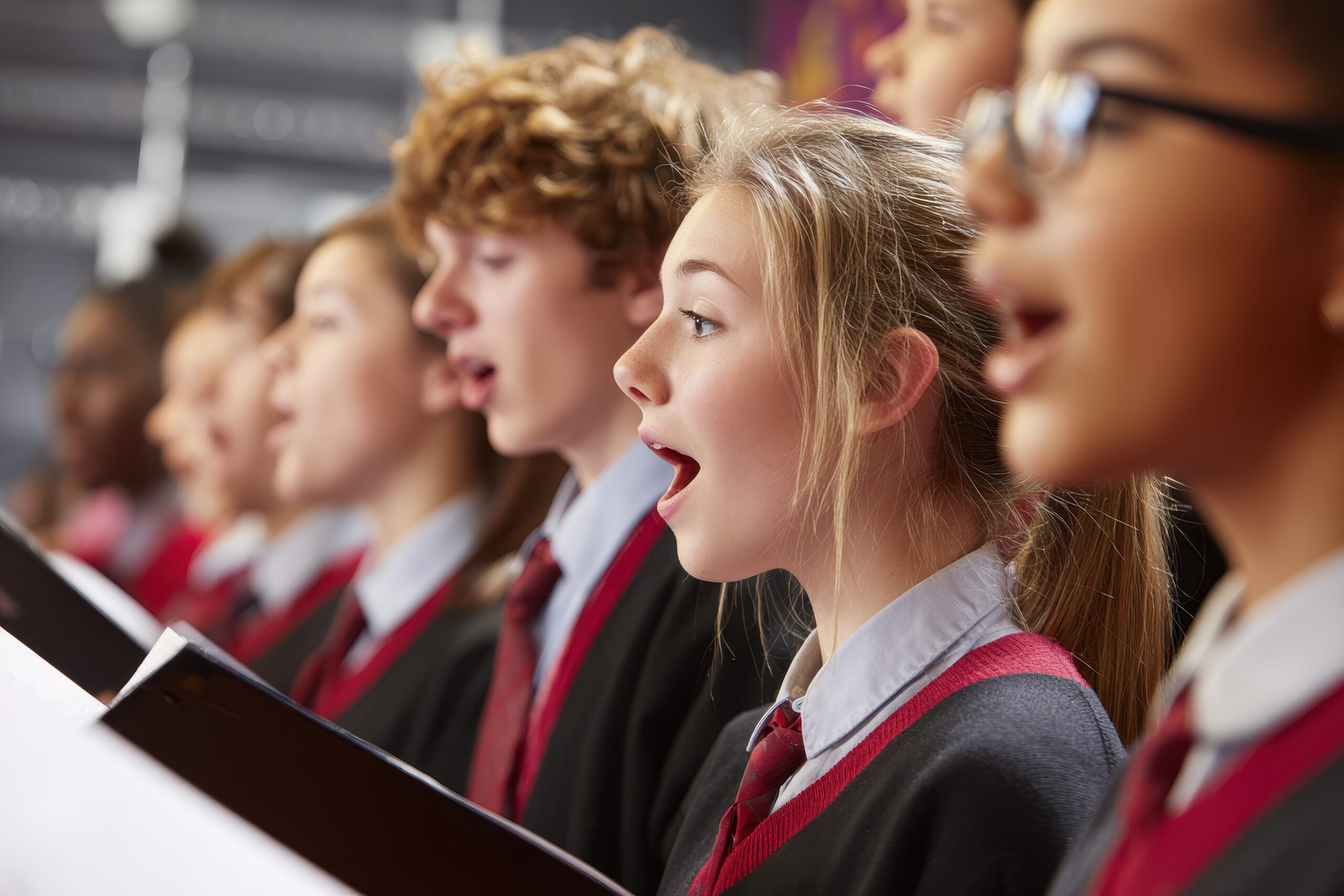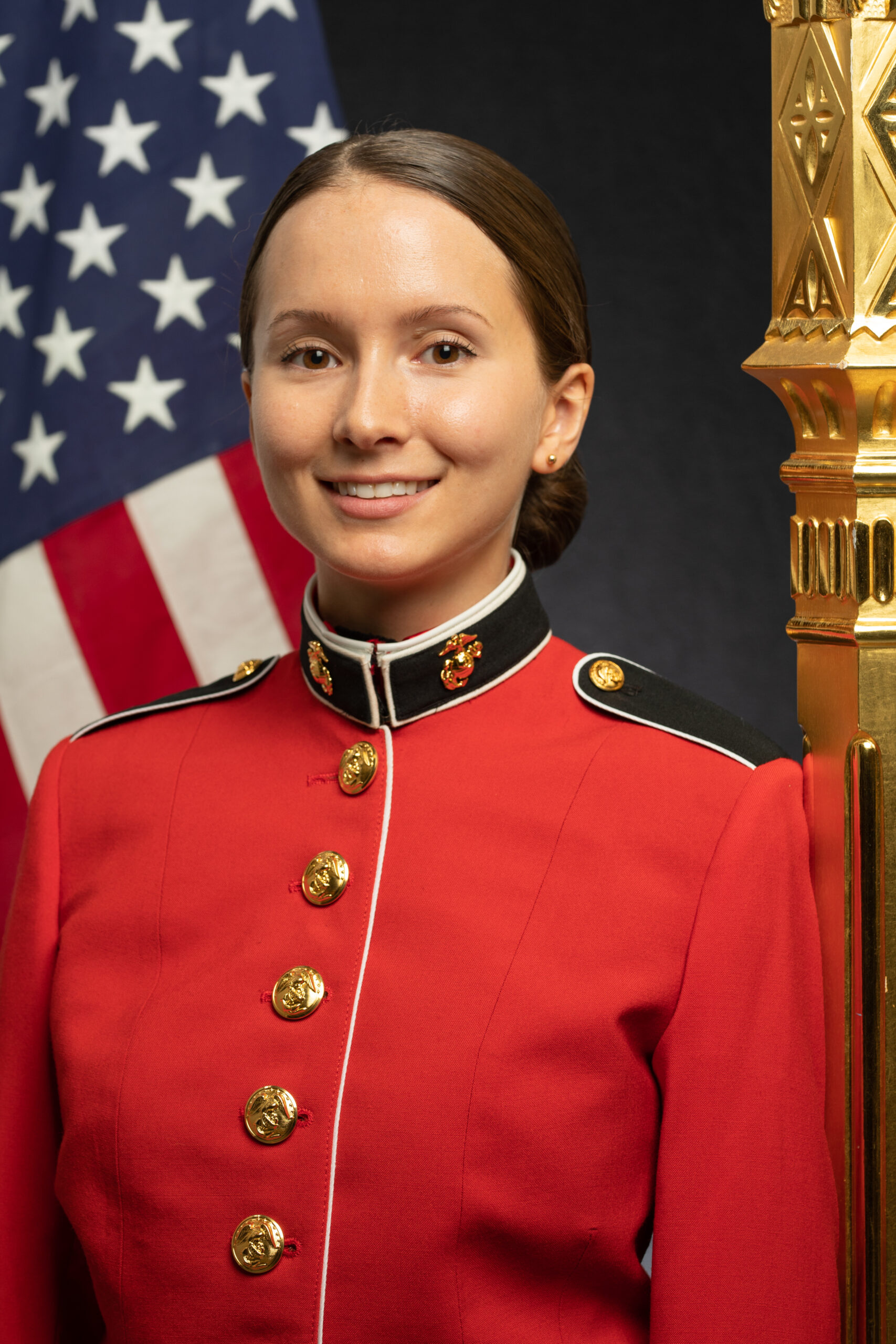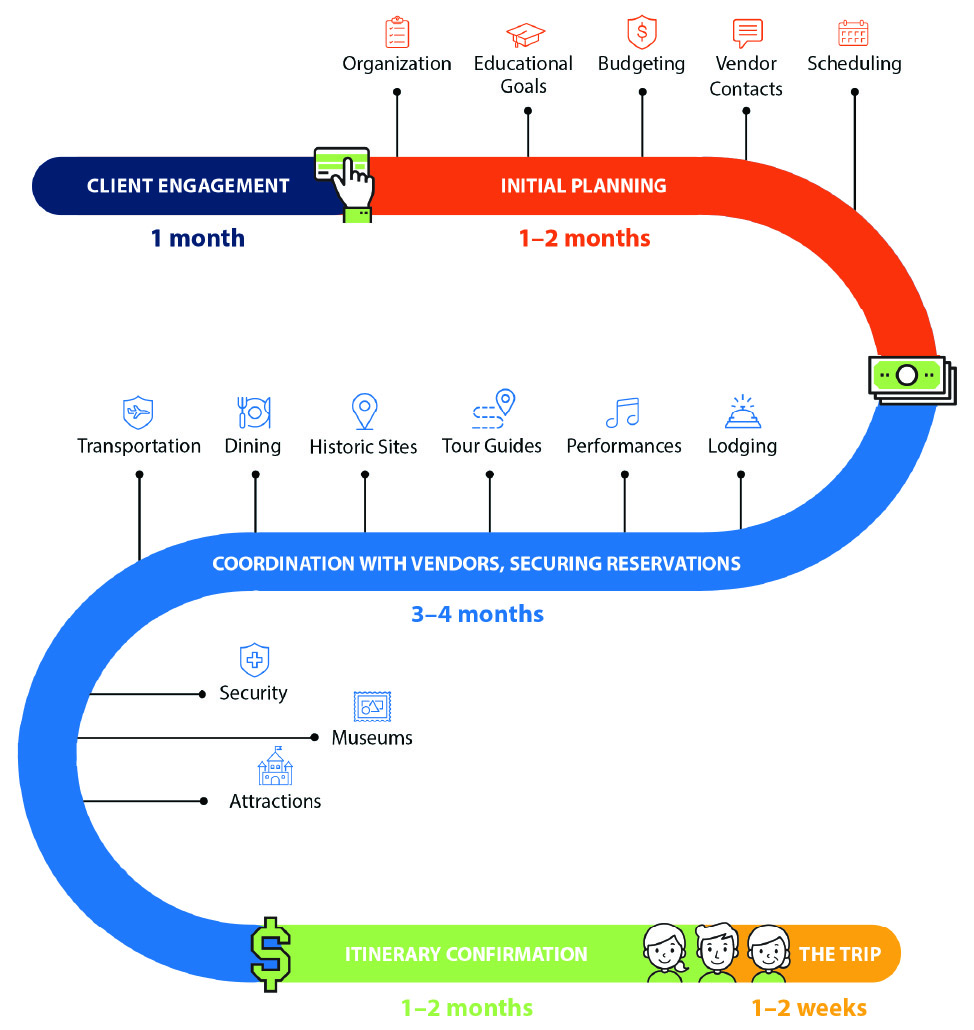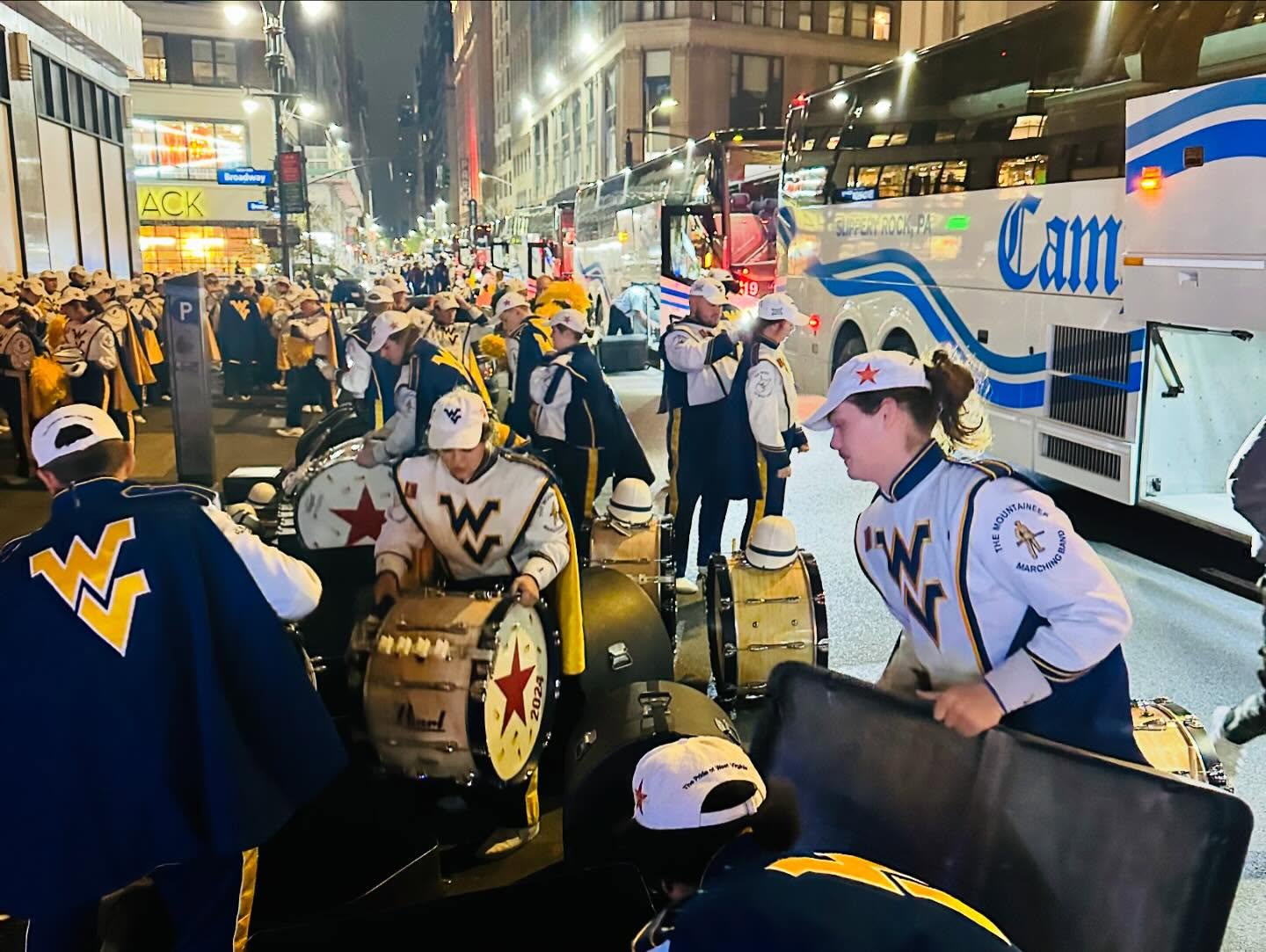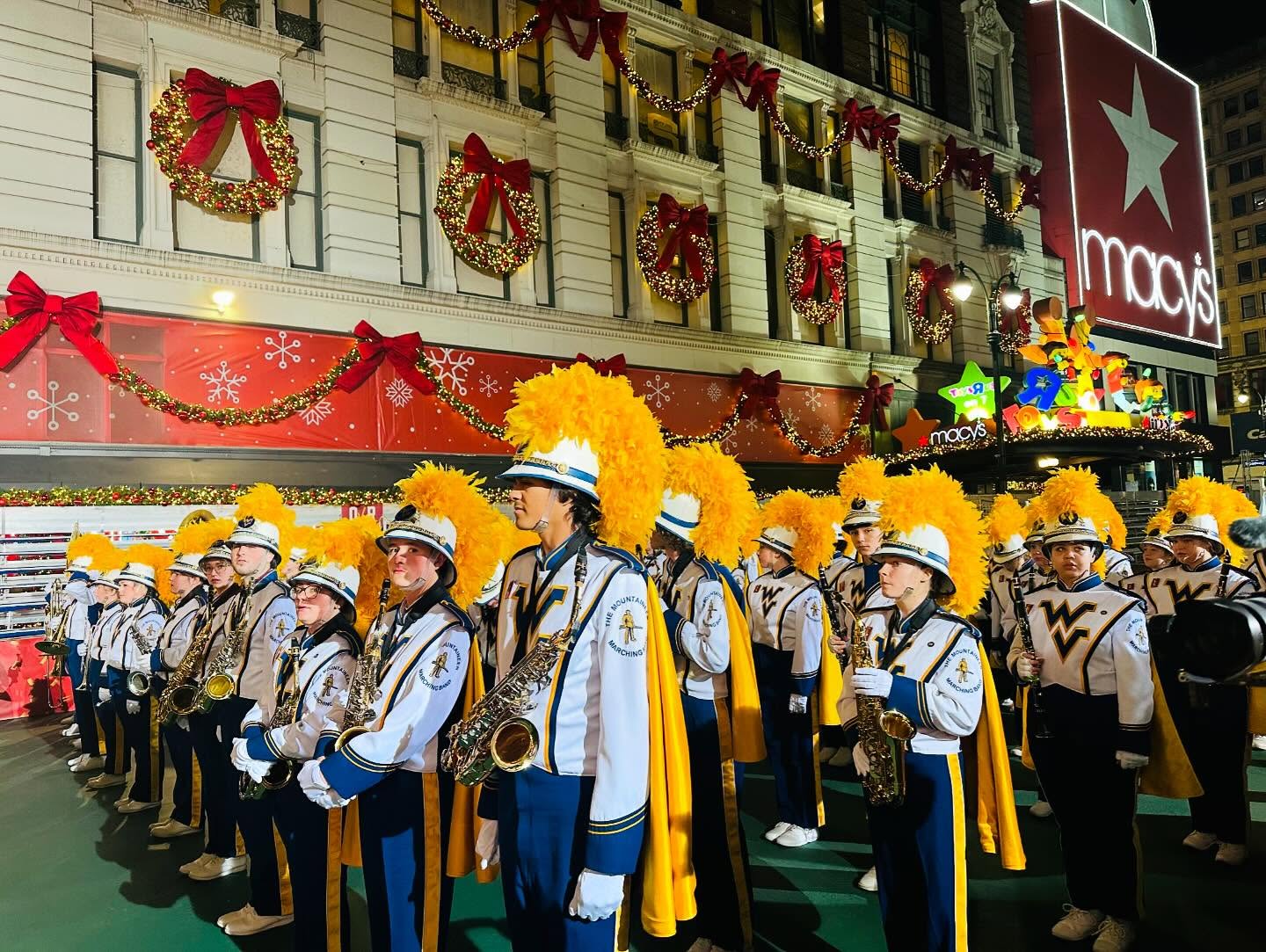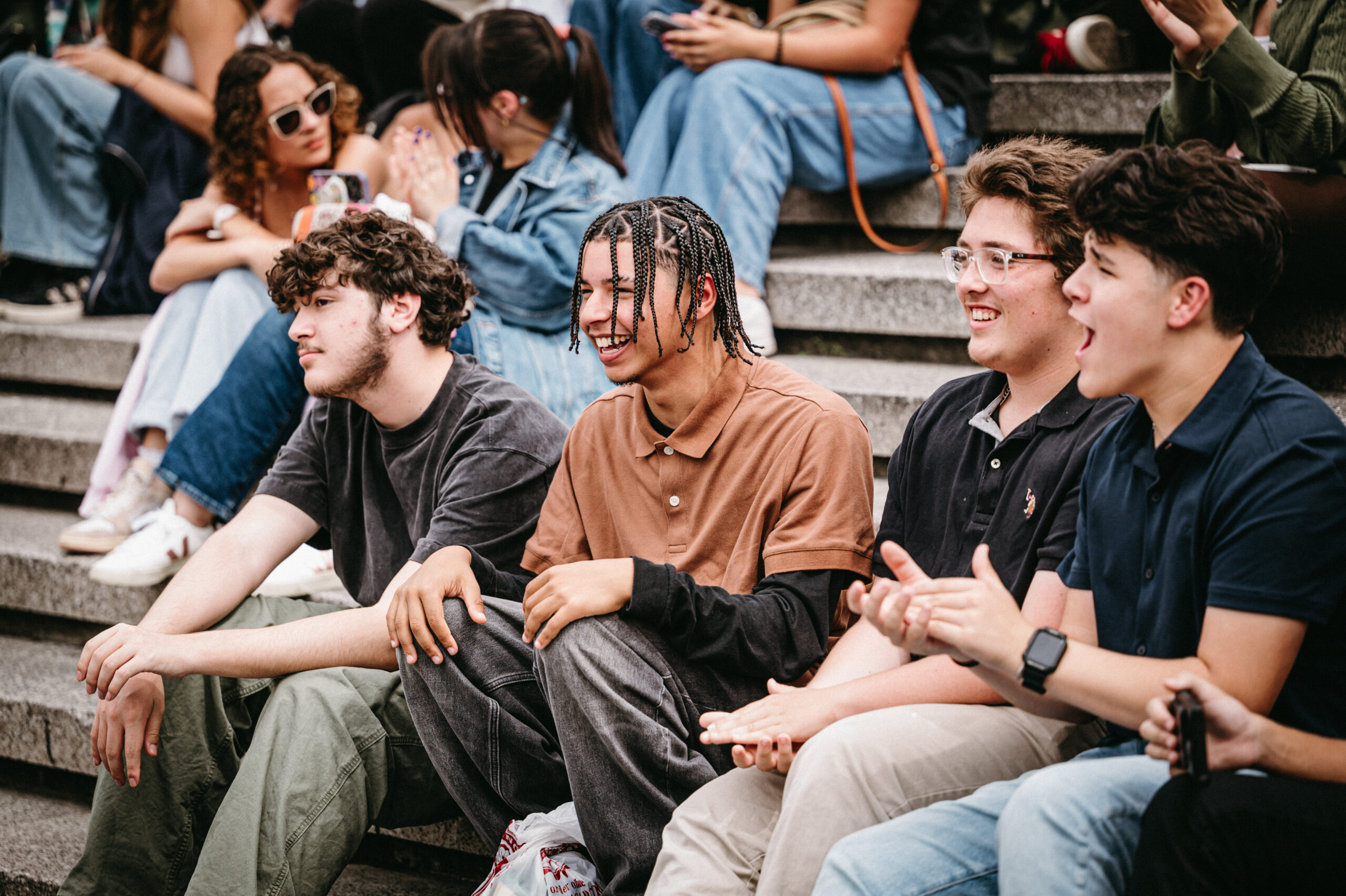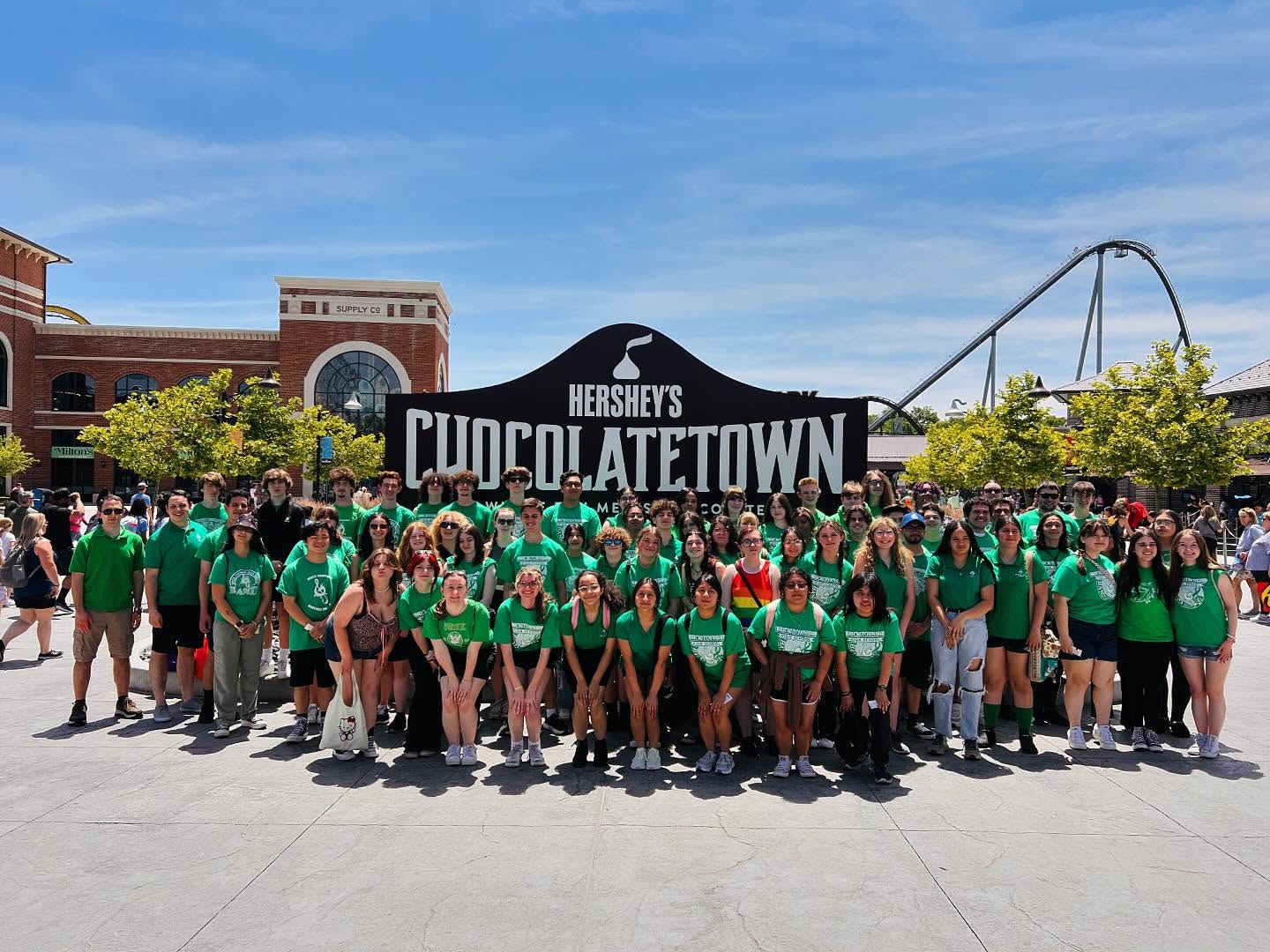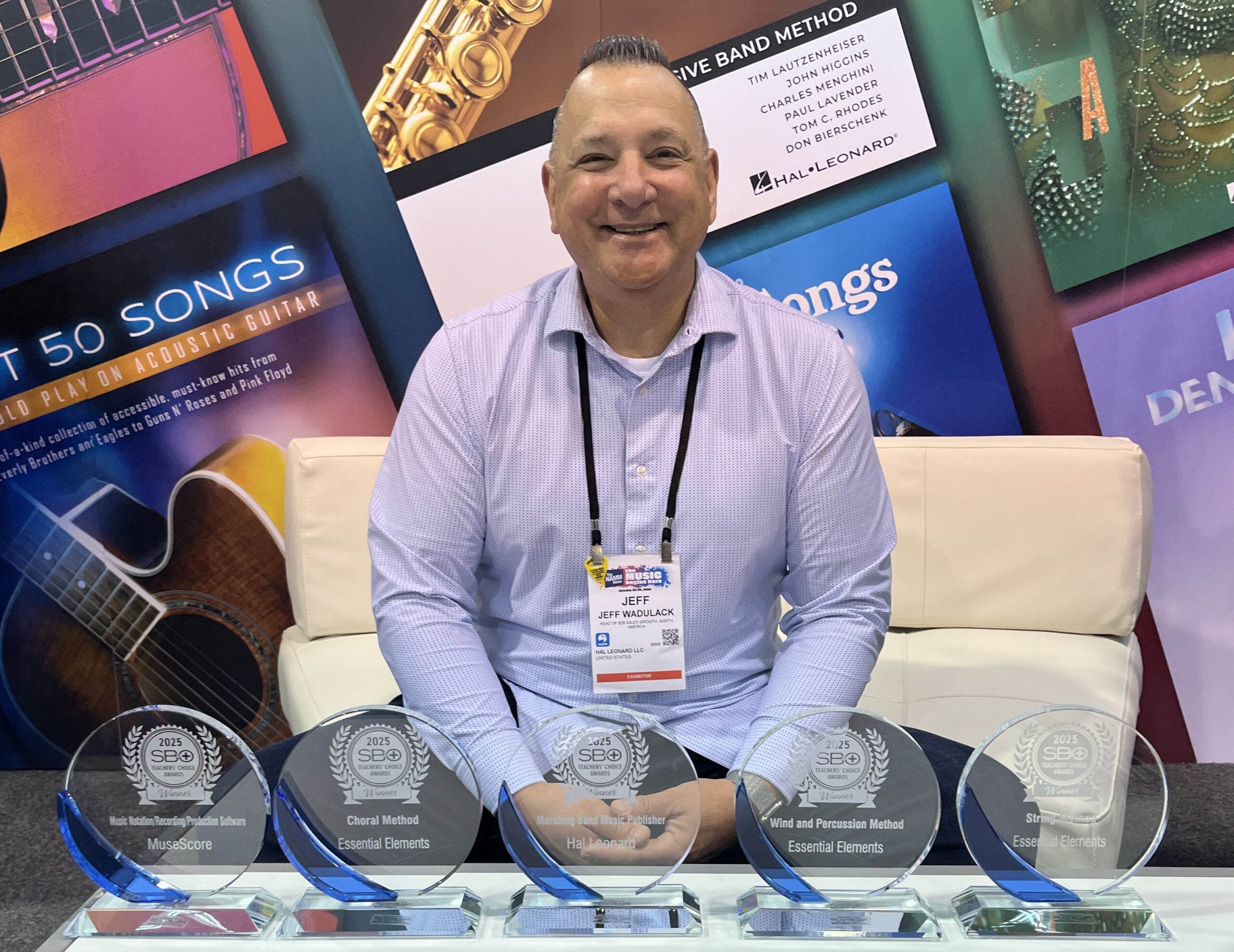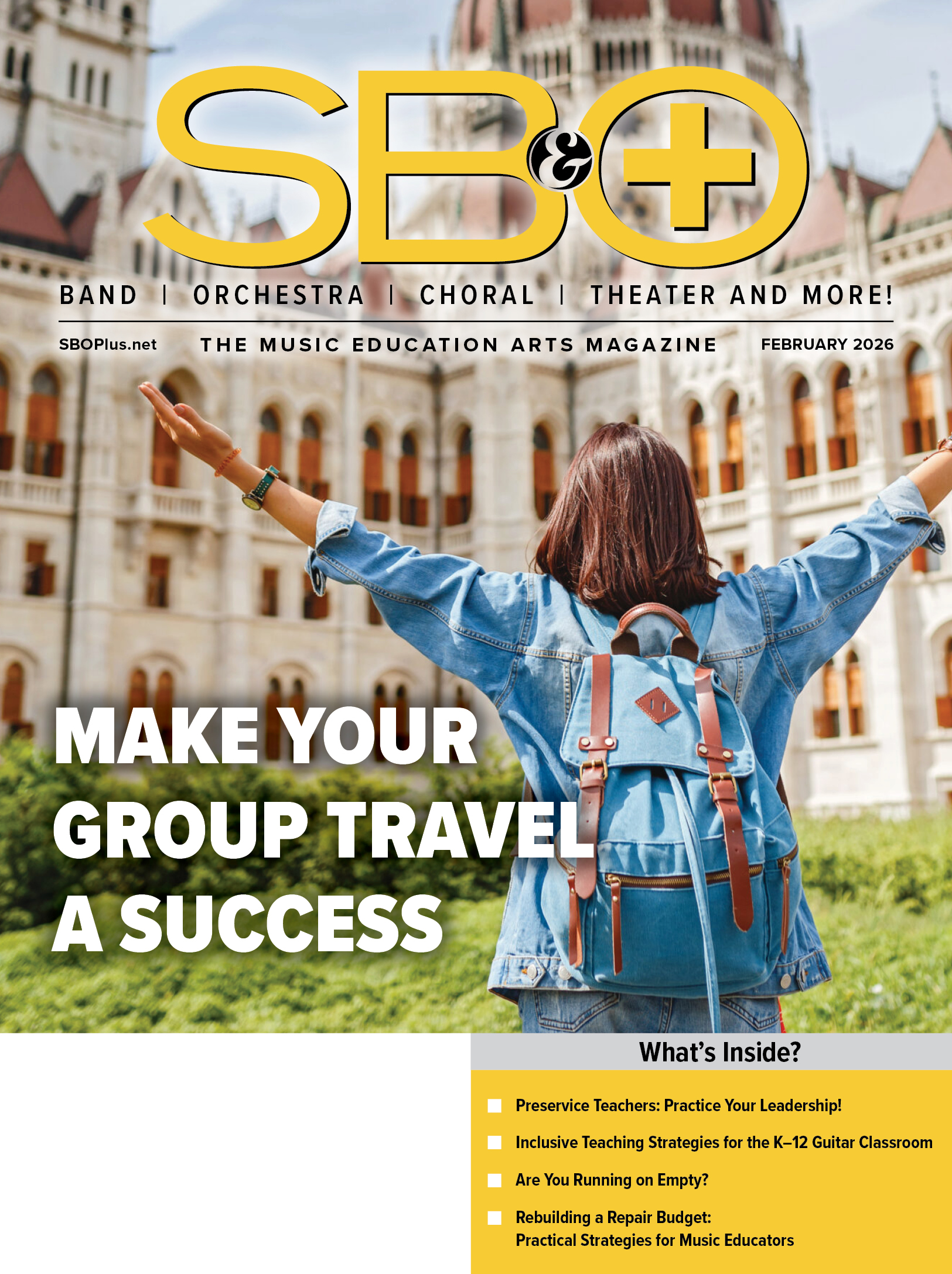How Advocating for New Music Can Grow Your Program.
By Dr. James David, D.M. and Dr. Christopher J. Nicholas, D.M.A.
Commissioning a new work for an ensemble can be one of the most effective and rewarding ways to increase the stature and visibility of a music program. While at first the process may seem daunting, the procedural challenges are few, and most directors will find that approaching composers to write new music for a school band or orchestra is surprisingly easy to do. The end result can be one of the most satisfying musical experiences for students, parents, and the school community.
In this article, topics will include establishing a consortium commission; composer residencies and interactions; negotiating commission fees and contracts; establishing relationships with local and regional composers; and promoting the world premiere performance for maximum benefit.
There are many reasons to commission new music from a composer:
- The value of students working directly with a living composer is incalculable and hard to overstate.
- The process of seeing a work come together from initial inception to world premiere is rewarding for students, conductors, and parents alike.
- Many composers are surprisingly willing and available to write for student ensembles.
- Commission fees and other costs can often be made much more affordable depending on the composer’s experience level/professional affiliation.
Establishing a Consortium Commission
You might be wondering, “What is a consortium commission?” A consortium commission represents a group of schools and organizations that team together to share in the commissioning of a new piece of music, including splitting the fee, performance exclusivity, and dedication rights. This is different from a normal commission in that, normally, one school would assume responsibility for the commissioning fee and retain performance exclusivity and dedication rights.
The first step in creating a consortium is to write a consortium announcement. The announcement of the commission project should include the following:
- Projected date of completion for the work
- Deadlines for joining the consortium
- Consortium fee per school
- Biographical information about the composer
- Description of the piece (genre, duration, and grade level)
- Links to video and/or audio of other works by this composer
- Contact information to join the consortium commission
The next step is to distribute this announcement. Distribution of this consortium commission announcement may be sent to organizations such as the American School Band Directors Association, the National Band Association, your state music education association, and the College Band Directors National Association, as well as publications including School Band & Orchestra magazine, Music Educators Journal, and the Journal for Research in Music Education.
Once that has been accomplished, you can begin creating the consortium contract. Contracts need not be lengthy or confusing, and examples of a consortium commission contract may be found online at JamesMDavid.com.
The benefits of creating a consortium are numerous, including one of the most obvious: that the fee is much more manageable when divided among 15 to 20 schools. Additionally, it gives the project a national or even international scope that can create strong connections with other professionals in your field. Finally, a consortium usually streamlines and hastens the challenges of meeting funding and contractual obligations.
Negotiating with the Composer
Negotiating with the composer should be an easy and enjoyable process for both the composer and the commissioning body. However, it is important to consider some general guidelines:
Do:
- Share general instrumentation information (minimum/maximum)
- Share ensemble strengths/weaknesses
- Specify desired duration (minimum/maximum)
- Suggest possible genre(s) (for example, fanfare, overture, suite, symphony)
- Recommend an appropriate grade level (give a few examples)
- Suggest deadline(s) for either the score, the parts, or both
- Establish the period of exclusivity – performance, recording, and so on.
Don’t:
- Voice very specific stylistic concerns
- Give overly specific instrumentation
- Demand programmatic elements (unless it is integral to the identity of the consortium, such as a memorial piece)
Composer Interactions
There are a handful of different ways to interact with the composer, including residencies, phone/email contact, and videoconferencing.
Composers are often enthusiastically willing to travel to a school for rehearsals and/or to guest conduct the performance of the world premiere. In this case, it is extremely helpful if the booster organization can provide travel support. Offering even a small amount of assistance can make a big difference in the final result.
Directors should always feel free to interact with the composer on the phone as often as need be, as well as via email. Don’t be afraid to make contact – you’ll find that composers appreciate updates on the progress of your rehearsals and any feedback you can give them.
Videoconferencing is relatively simple, and can provide real-time interaction with the composer and the ensemble during rehearsal. It is also an inexpensive and innovative way to allow the composer to provide feedback to the group. Be sure to use a good quality camera and microphone for the best experience.
When approaching the composer initially, it is important to ask about the level of interaction that they would be comfortable with in terms of conducting, coaching, and so on. Although many composers are also skilled conductors, it should never be assumed that they would want to conduct a performance.
Keep it Local
Working with local and regional composers is highly recommended. Don’t be afraid to visit composer websites or to initiate contact with established conductors who specialize in new music for recommendations on up-and-coming composers. It is also wise to look to junior faculty from music programs at local and regional universities and colleges. The following is a general guideline for how much one should expect to offer as a commission fee:
- “Mountaintop” composers ($30-50k): Leading composers typically earn very large commission fees for a significant work. Expect these composers to have much less flexibility in terms schedule, as they are often booked years in advance.
- Mid-tier professionals and university composition faculty ($2-15k): Generally, $1,000 per minute is recommended for professional composers who earn their primary living from composing. University faculty will often accept smaller fees as supplemental income.
- Doctoral/Master’s students of established composers ($500-2k): Many skilled composers are currently completing graduate programs and are very enthusiastic about receiving commissions. They are usually quite open to advice from conductors about possible improvements as well.
Promoting the Final Product
Properly promoting the final product can be exciting for your community, program, and students. Be sure to arrange for a high quality video and audio recording of the premiere and post links to your website and/or Facebook page. Make the world premiere the most talked-about success of your band program around the world!
For more information, New Music, USA (a non-profit organization dedicated to new music) has excellent resources on the commissioning process: www.newmusicusa.org/professional-resources.
Dr. Christopher Nicholas is the director of bands at Colorado State University, where he conducts the Wind Ensemble, teaches music education courses, and guides all aspects of the band and graduate wind conducting programs. Prior to his appointment at CSU, Dr. Nicholas served on the music faculty of the University of Wyoming, Grinnell College, and Sycamore (Ill.) High School. central.colostate.edu/people/cnicholas
Dr. James M. David is assistant professor of Composition at Colorado State University and a nationally recognized composer. His recent projects include works for Joseph Alessi of the New York Philharmonic, the Dallas Wind Symphony, and the Atlantic Coast Conference Band Directors Association. www.JamesMDavid.com
In this article, topics will include establishing a consortium commission; composer residencies and interactions; negotiating commission fees and contracts; establishing relationships with local and regional composers; and promoting the world premiere performance for maximum benefit.
There are many reasons to commission new music from a composer:
- The value of students working directly with a living composer is incalculable and hard to overstate.
- The process of seeing a work come together from initial inception to world premiere is rewarding for students, conductors, and parents alike.
- Many composers are surprisingly willing and available to write for student ensembles.
- Commission fees and other costs can often be made much more affordable depending on the composer’s experience level/professional affiliation.
Establishing a Consortium Commission
You might be wondering, “What is a consortium commission?” A consortium commission represents a group of schools and organizations that team together to share in the commissioning of a new piece of music, including splitting the fee, performance exclusivity, and dedication rights. This is different from a normal commission in that, normally, one school would assume responsibility for the commissioning fee and retain performance exclusivity and dedication rights.
The first step in creating a consortium is to write a consortium announcement. The announcement of the commission project should include the following:
- Projected date of completion for the work
- Deadlines for joining the consortium
- Consortium fee per school
- Biographical information about the composer
- Description of the piece (genre, duration, and grade level)
- Links to video and/or audio of other works by this composer
- Contact information to join the consortium commission
The next step is to distribute this announcement. Distribution of this consortium commission announcement may be sent to organizations such as the American School Band Directors Association, the National Band Association, your state music education association, and the College Band Directors National Association, as well as publications including School Band & Orchestra magazine, Music Educators Journal, and the Journal for Research in Music Education.
Once that has been accomplished, you can begin creating the consortium contract. Contracts need not be lengthy or confusing, and examples of a consortium commission contract may be found online at JamesMDavid.com.
The benefits of creating a consortium are numerous, including one of the most obvious: that the fee is much more manageable when divided among 15 to 20 schools. Additionally, it gives the project a national or even international scope that can create strong connections with other professionals in your field. Finally, a consortium usually streamlines and hastens the challenges of meeting funding and contractual obligations.
Negotiating with the Composer
Negotiating with the composer should be an easy and enjoyable process for both the composer and the commissioning body. However, it is important to consider some general guidelines:
Do:
- Share general instrumentation information (minimum/maximum)
- Share ensemble strengths/weaknesses
- Specify desired duration (minimum/maximum)
- Suggest possible genre(s) (for example, fanfare, overture, suite, symphony)
- Recommend an appropriate grade level (give a few examples)
- Suggest deadline(s) for either the score, the parts, or both
- Establish the period of exclusivity – performance, recording, and so on.
Don’t:
- Voice very specific stylistic concerns
- Give overly specific instrumentation
- Demand programmatic elements (unless it is integral to the identity of the consortium, such as a memorial piece)
Composer Interactions
There are a handful of different ways to interact with the composer, including residencies, phone/email contact, and videoconferencing.
Composers are often enthusiastically willing to travel to a school for rehearsals and/or to guest conduct the performance of the world premiere. In this case, it is extremely helpful if the booster organization can provide travel support. Offering even a small amount of assistance can make a big difference in the final result.
Directors should always feel free to interact with the composer on the phone as often as need be, as well as via email. Don’t be afraid to make contact – you’ll find that composers appreciate updates on the progress of your rehearsals and any feedback you can give them.
Videoconferencing is relatively simple, and can provide real-time interaction with the composer and the ensemble during rehearsal. It is also an inexpensive and innovative way to allow the composer to provide feedback to the group. Be sure to use a good quality camera and microphone for the best experience.
When approaching the composer initially, it is important to ask about the level of interaction that they would be comfortable with in terms of conducting, coaching, and so on. Although many composers are also skilled conductors, it should never be assumed that they would want to conduct a performance.
Keep it Local
Working with local and regional composers is highly recommended. Don’t be afraid to visit composer websites or to initiate contact with established conductors who specialize in new music for recommendations on up-and-coming composers. It is also wise to look to junior faculty from music programs at local and regional universities and colleges. The following is a general guideline for how much one should expect to offer as a commission fee:
- “Mountaintop” composers ($30-50k): Leading composers typically earn very large commission fees for a significant work. Expect these composers to have much less flexibility in terms schedule, as they are often booked years in advance.
- Mid-tier professionals and university composition faculty ($2-15k): Generally, $1,000 per minute is recommended for professional composers who earn their primary living from composing. University faculty will often accept smaller fees as supplemental income.
- Doctoral/Master’s students of established composers ($500-2k): Many skilled composers are currently completing graduate programs and are very enthusiastic about receiving commissions. They are usually quite open to advice from conductors about possible improvements as well.
Promoting the Final Product
Properly promoting the final product can be exciting for your community, program, and students. Be sure to arrange for a high quality video and audio recording of the premiere and post links to your website and/or Facebook page. Make the world premiere the most talked-about success of your band program around the world!
For more information, New Music, USA (a non-profit organization dedicated to new music) has excellent resources on the commissioning process: www.newmusicusa.org/professional-resources.
Dr. Christopher Nicholas is the director of bands at Colorado State University, where he conducts the Wind Ensemble, teaches music education courses, and guides all aspects of the band and graduate wind conducting programs. Prior to his appointment at CSU, Dr. Nicholas served on the music faculty of the University of Wyoming, Grinnell College, and Sycamore (Ill.) High School. central.colostate.edu/people/cnicholas
Dr. James M. David is assistant professor of Composition at Colorado State University and a nationally recognized composer. His recent projects include works for Joseph Alessi of the New York Philharmonic, the Dallas Wind Symphony, and the Atlantic Coast Conference Band Directors Association. www.JamesMDavid.com

